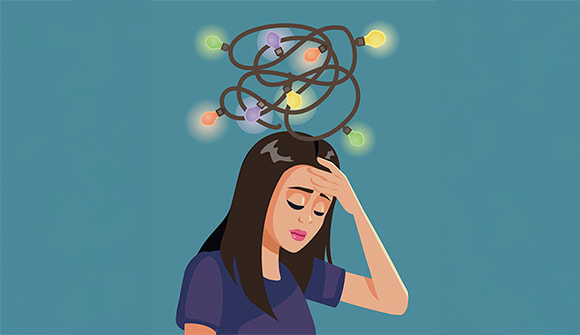More than a mood
Misconceptions about bipolar disorder.
Article Date:

When people first hear they have bipolar disorder, they may fear a future of limited options and instability, or that they’ll forever be on a mix of heavy medications.
But behavioral health experts say that’s not the case.
“With proper understanding and treatment, you can live a regular life, have normal relationships, pursue a fulfilling career and do anything anyone else can do. A bipolar diagnosis doesn’t limit your abilities,” said Shariq Refai, MD, a psychiatrist with Baptist Behavioral Health. “A mental health professional can advise you on treatments based on your symptoms, and it may or may not require medication.”
Mood vs. mania
Bipolar disorder, like other mental health conditions, is diagnosed through an in-depth evaluation by a mental health professional. The condition is marked by significant fluctuations in mood.
“Bipolar disorder exists on a spectrum, from depressive episodes to either mania or hypomania [slightly less severe],” Dr. Refai said. “The mania – feelings of euphoria or extremes in one’s mood – is what defines bipolar disorder and may result in erratic or impulsive behavior. A major factor can be staying awake or sleeping for just a few hours and still having a lot of energy.”
The insomnia can last anywhere from a few days to more than a week.
Types of bipolar disorder
There are three different types of bipolar, designated by distinct changes in mood:
- Bipolar I is characterized by extremes of mood, including mania and depressive symptoms. This can include increased energy, talking a lot, and erratic and impulsive behaviors. If left untreated, it can lead to psychosis, such as delusions or hallucinations.
- Bipolar II is characterized by depression and hypomanic episodes that can be disruptive but are less severe than the mania associated with Bipolar I.
- Cyclothymia is even milder than Bipolar II but still characterized by mood swings.
“Mental illness is not discriminatory and can affect anyone, but if you have a family history of bipolar disorder, you’re more likely to inherit it. This condition usually starts to show in someone’s early to mid-20s,” Dr. Refai said.
Mood swings aren't always related to bipolar disorder and can be caused by many different things including stress, diet, depression, anxiety, lack of sleep or feeling overwhelmed. A proper assessment can get to the bottom of what’s contributing to the mood fluctuations.
Symptoms of bipolar disorder can resemble attention deficit hyperactivity disorder (ADHD). In fact, sometimes children diagnosed with ADHD only discover they have bipolar disorder in adulthood. An accurate diagnosis of bipolar disorder in children requires careful evaluation by a childhood behavioral health expert.
Common misconceptions
There’s long been a stigma surrounding mental illness, which may inhibit some people from seeking help. Left untreated, mental health conditions can affect your quality of life, making things feel meaningless. Dr. Refai stressed that feelings of hopelessness are not normal, and there’s always help available.
“We all deal with some form of emotional distress for one reason or another, but we may not understand what someone else goes through,” he said. “When someone has never experienced bipolar disorder, and they only know what they hear or see on TV – which is often over-dramatized – it can create false impressions about it or any other mental illness.”
Demystifying mania
Making healthy choices offers benefits but isn’t a cure.
“One of the misconceptions people have is if they eat right, exercise, sleep well and remain social, they won’t have mood fluctuations or symptoms of bipolar disorder,” Dr. Refai said. “While it’s true that a healthy lifestyle can help regulate your mood, bipolar disorder is a biological condition that will require medical intervention to prevent a relapse and provide ongoing stability.”
If you think a loved one may be suffering from bipolar disorder, Dr. Refai recommended you voice your concerns about why you think they may need to seek help.
“It’s just as important to listen to what your loved one has to say and ask how you can help. It’s best to suggest they see a mental health professional so they can live with a more stable mood,” said Dr. Refai. “While not everyone with bipolar disorder requires medication, many individuals benefit from ongoing treatment with a psychiatrist to control symptoms and prevent relapses.”
We're here to help
If you or a loved one need to speak to a medical professional about bipolar disorder or other mental health concerns, Baptist Behavioral Health is ready to help. Call 904.376.3800 to schedule an appointment.
Additionally, through Baptist Health’s Collaborative Care Model, Baptist Primary Care physicians work directly with Baptist Behavioral Health providers so you can receive the help you need more quickly. To schedule an appointment with a primary care physician, call 904.202.4YOU (4968) or fill out a request form online.



